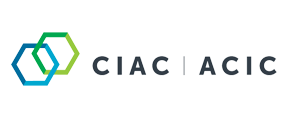CIAC Responds to Federal Government’s proposed integrated management approach to plastic products to prevent waste and pollution
October 15, 2020
Plastics are vital to our modern way of life and are used to advance our society’s environmental, health and safety priorities, including a transition to a net-zero emissions future. However, plastic does not belong in landfills or the environment, it belongs in the economy.
The Chemistry Industry Association of Canada (CIAC), remains firmly of the view that the Canadian Environmental Protection Act (CEPA), 1999 is not an appropriate tool for managing post-consumer plastic waste. CIAC supports the development of national waste legislation that will provide the appropriate authorities and the tools to support advancing a circular economy for plastics in Canada.
CIAC is also concerned with the emphasis on banning certain products solely because they are widely used in society and are improperly managed at end of use. Our goal, as a society, must be to properly manage and establish a circular economy for all plastics products. Today, important work is being done in all jurisdictions, including Alberta, British Columbia, Ontario and Quebec, to modernize and advance recycling systems towards a circular economy.
CIAC believes the Government of Canada should allow the appropriate time for consultation with industry and the provinces to ensure that its proposed approach to a circular economy for plastics is in line with the Canadian Council of Ministers of Environment (CCME) National Strategy and Action Plan on Zero Plastic Waste. We ask the Government to delay the timing of the addition of “manufactured plastic items” to Schedule 1 of CEPA in Canada Gazette Part 1 from October 10 until a period following the end of the public consultation on its Discussion Paper. This would allow sufficient time for industry and the provinces to provide input and ensure a decision is not made prematurely.
Canada’s plastics producers are taking important actions to address plastic waste on land, including source reduction, design for recycling, and reuse models; and investing in technologies to improve recycling.
Canada’s plastics manufacturers add $28 billion to the national economy annually and directly employ over 93,000 Canadians within 1,850 different businesses; 86 per cent of these are SMEs and the impact and job losses will be felt in communities across the country by family-run companies that have been operating for multiple generations.
CIAC will be providing advice to the federal government regarding its proposed integrated management approach to plastic products to prevent waste and pollution and we look forward to working with all levels of government in Canada to transition to a circular economy for plastics while maintaining well-paying jobs for thousands of Canadians.





